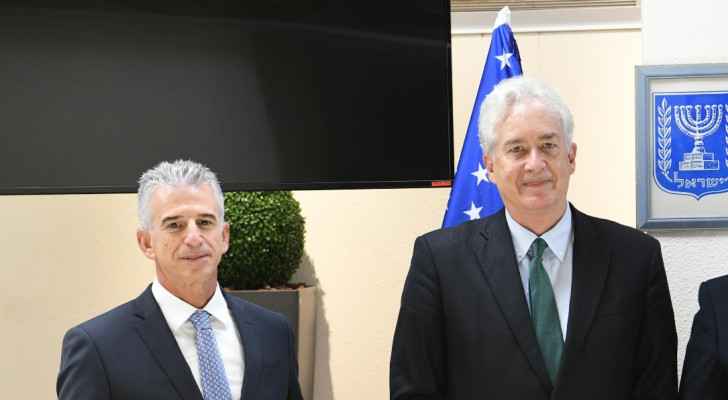As Beijing “replaces” Washington as Saudi Arabia’s strongest ally, China “flies” its bullet train through the Arabian deserts.
A long-nosed, white-and-gold javelin that travels at 300 km/hr through a desert is a sight to witness. The 450-kilometer Haramain Express electric railway, which translates to “two sanctuaries” in Arabic, is built to accommodate 60 million people annually, including many Hajj and Umrah pilgrims, on its 35 trains.
Since many nations increase their spending on building new or improving current rail infrastructure, Chinese companies are at the forefront of railway construction in the wider Middle East area, built by China Railway 18th Bureau Group.
The express train is anticipated to reduce journey time between Mecca and Madinah to under two hours as opposed to six hours by bus thanks to electric propulsion that will propel the trains to an operating speed of 300 kilometres per hour.
The train is one of the most important public transportation projects in the world and the biggest transportation project in the Middle East.
The Haramain Express is the first electric double-track high-speed railway in Saudi Arabia and the first desert high-speed railway ever built with Chinese assistance. In Saudi Arabia, using the high-speed rail has changed how people move on land.
The rail, which connects the three major Hajj destinations, is the first railway constructed by a Chinese company in the Middle East and is intended to reduce traffic congestion on the roads during the Hajj.
The world’s ten fastest trains are just the start of a rail network that is anticipated to spread throughout the Middle Eastern Kingdom as it invests billions in infrastructure to increase tourism and diversify its economy away from oil.
China is also engaged in Saudi Arabia’s $500 billion mega-city project, NEOM, in addition to the Haramain Express project. A $20 billion investment fund was recently established by China and Saudi Arabia to connect Saudi Vision 2030 with the Belt and Road Initiative.
There have also been rumours that Saudi Aramco shares will be purchased privately by China. Such a deal would be Xi Jinping’s way of endorsing Mohammed bin Salman politically. It might also represent a crucial shift of Saudi Arabia towards China and away from the US.
“The cooperation between China and Saudi Arabia is based on consultation, joint contribution, and shared benefits,” says Wu Sike, a former Chinese Special envoy to the Middle East. We cooperate in a sequence of 1+2+3. The main axis will be collaboration in the energy sector. There are two ways of building facilities that are supported by trade and investment facilitation. Three represents collaboration in space, new energy, and advanced and new technology.
Beijing’s shrewd diplomacy is taking place against the background of Washington’s diplomatic withdrawal from the area as a result of its withdrawal from Afghanistan.
Rail contracts worth $16 billion are expected to be awarded in the Middle East and North Africa this year, according to business intelligence company MEED. The cost of the longer-term pipeline initiatives may exceed $200 billion. It makes sense that Chinese companies would like to profit from the possibilities.
The Belt and Road Initiative (BRI), which seeks to connect Asia, Europe, the Middle East, and Africa, is at its core, and experts have dubbed China’s foray into the construction of railways across the area “Railway Diplomacy.”
China’s gain is America’s loss.
According to reports, the Saudi government previously stated that Riyadh would require US support for nuclear power plant construction before Washington would consider plans to normalise ties with Israel.
However, it now seems unlikely since China will provide the Kingdom with the equipment and technological know-how needed for the plants. Now, the Saudis can reject Israel’s recognition without suffering any consequences.
New mechanisms for collaboration have been created by China and Arab states over the past ten years, primarily as a result of the Belt and Road Initiative. China formed extensive strategic alliances on a bilateral basis with Algeria, Egypt, Saudi Arabia, and the United Arab Emirates in 2014, 2016, and respectively. With Qatar in 2014, Iraq in 2015, Morocco in 2016, Oman and Kuwait in 2018, China forged strategic alliances.
20 Arab nations had signed cooperation agreements with China as of January 2022 as part of the Belt and Road Initiative in a number of areas, including energy, investment, commerce, finance, infrastructure, and high technology.
China and Arab states created the China-Arab States Cooperation Forum in 2004 and the China-Arab States Expo in 2013, both on a multilateral level. At the 8th Ministerial Meeting of the China-Arab States collaboration Forum in 2018, China and Arab states signed the Declaration of Action on China-Arab States Cooperation under the Belt and Road Initiative, which outlined the collaboration between China and Arab states. Saudi Arabia was recently accepted as a “dialogue partner” into the Shanghai Cooperation Organization (SCO).
Riyadh’s decision to join forces with the bloc also came less than three weeks after the announcement of a historic reconciliation agreement with Iran, brokered by China, to reestablish complete diplomatic relations after they were severed seven years earlier.
Shia-majority Iran and predominantly Sunni Saudi Arabia have long-running proxy wars in the area, including Yemen. Tehran has denied supporting the Houthis rebels, who in late 2014 overthrew President Abd-Rabbu Mansour Hadi’s globally recognised government and seized control of large portions of the impoverished nation.
In March 2015, the Saudi-led military alliance intervened to back Hadi, but the Houthis still rule Yemen, including the nation’s capital Sanaa.
Although Riyadh and Tehran had previously held bilateral discussions, the Saudi capital claims that President Xi Jinping’s promise to act as a “bridge” between the two Middle East superpowers last year gave the reconciliation process a boost.
Given Saudi Arabia’s historically close partnership with Washington, which has lately been strained due to disagreements over human rights and oil production, Xi’s involvement in the reconciliation raised eyebrows.



